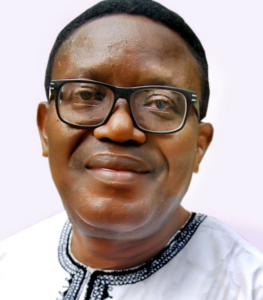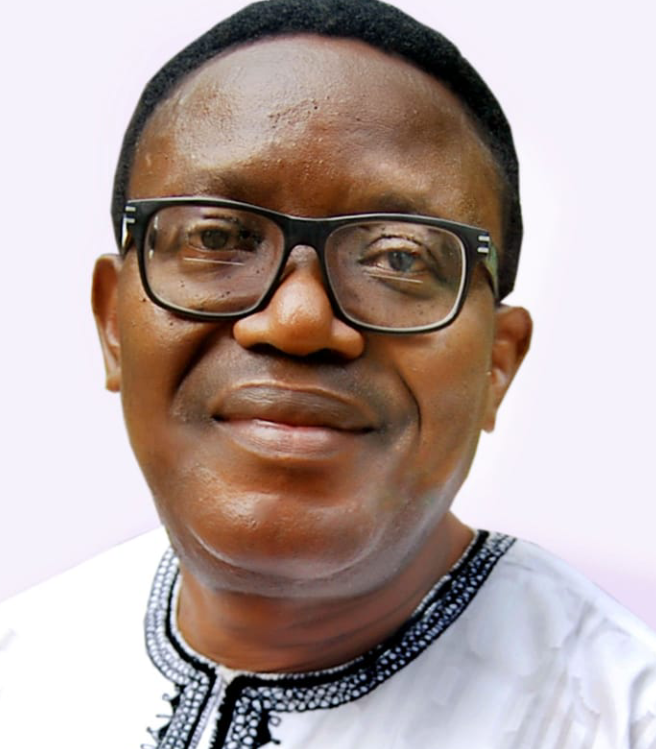By Owei Lakemfa
Census is very serious business as it requires the general mobilisation of the populace. In many cases, the nation is placed under an emergency. One of the earliest accounts of census was given by Dr Luke in his Gospel in which he wrote that Emperor Caesar Augustus issued a decree for a census of the Roman world, including colonized Israel(Luke 2:1-5).
This general mobilisation required everyone to go to his own city to be counted. This was why Joseph and Mary, his betrothed wife,
went up from Galilee to Bethlehem. It was during that obviously stressful journey, Mary had cramps, and because populations were on the move, the inns were overcrowded and the couple had to rest in a manger where Jesus was born. So, Jesus was counted as part of the important statistics required to run the Roman Empire.
This account serves to illustrate the fact that census is serious business as, theoretically, it provides vital data, especially demographic, social, economic, migration and immigration. It also provides the basis to plan employment, school enrolment, services and social protection programmes. These programmes include the palliatives the Buhari government is so much in love with perhaps because the figures never tally and its documents can easily go up in flames.
Census is ordinarily a reliable method of count compared to the estimate method that, today, puts our population at 220 million. I like the sound of that figure; that means when we pound the ground, the world will know Nigeria is the true Giant of Africa, and that contrary to the claims of our enemies, we are not a sleeping giant.
Just as Luke showed, census is general mobilisation, although in our case, we necessarily do not need to be counted in our villages and clans. Therefore, when this government joked with the idea of holding a census from this Wednesday, May 3, 2023, it was obvious there are unstated underlining reasons. There had been quite inadequate mass enlightenment and awareness. In any case, real census was impossible in the season of general elections which itself is a weapon of mass distraction, and can also be quite divisive.
So, what was government thinking before fixing the census date; a date some three weeks to its welcome exit?
Could it have been for the records, for fame or fortune, especially when the hangers-on would soon become financial orphans?
It was clear that government was not prepared for the census. So Nigerians were not surprised when last Friday, April 28, 2023, that is five days before the scheduled census take-off, Buhari postponed it.
If the exercise is postponed, can Nigerians be obliged the census of the huge sums of money so far expended or will this go into voice mail?
If the in-coming administration were to conduct a proper and reliable census, its motives must be clear and pure. They should not be like the colonial 1953 Census rigged by the British colonialists; the unreliable and disputed 1962/63 Census or the orphaned 1973 Census which even its parents disowned, leading to it being officially scrapped.

Also, the Buhari government rescinded its decision to collect an $800 million loan from the World Bank to provide palliatives for its fuel subsidy removal. The regime’s Minister of Finance, Budget and National Planning, Mrs Zainab Ahmed, had claimed the largesse would be distributed to 50 million Nigerians representing 10 million households.
First, if it is true that trillions of Naira would be saved by stopping the subsidies, why not expend part of it on the so-called palliatives rather than take another loan from the World Bank shylocks?
Secondly, what is the sense in the World Bank and Finance Ministry agreeing to spend about $53 million of the $800 loan on hiring staff, office administration, committee overheads and other logistics such as training and workshop?
Thirdly, we know palliatives, at least in Nigeria, have not improved the lives of the populace. For instance, President Muhammadu Buhari claims to have spent over N2 trillion on Social Investment Programmes, SIP, yet the state of the poor Nigerian has become worse. One of the testimonials on this failure is this same World Bank, which in its Poverty and Prosperity Report for last year, stated that Nigeria contributed three million people to global extreme poverty, and that every minute, over six Nigerians enter the extreme poverty bracket.
Fourthly, simple economics and accounting, common sense and logic dictate that if the payments of subsidies are stopped, that should reduce, not increase our debt burden.
Fifth, it is illogical seeking foreign loan to pay unsustainable sums allegedly to cushion the effects of subsidy removal rather than seek funds to either repair the refineries or build new ones.
Sixth, the reason for the so-called subsidy is clear: the failure of this government, after eight years in office, to refine petroleum products locally despite the abundance of crude oil in the country.
Seven, the slave-like acceptance of the World Bank policy that assigns to underdeveloped countries like Nigeria the role of raw material providers, and the West, that of manufacturers of finished products.
Eight, this government that claims to have fed school children when they were actually on lock-down at home due to the COVID-19 pandemic, has clearly shown it can neither manage nor be entrusted with palliatives.
Nine, this regime, because it is in reality, a regime, has manufactured so much untruth in eight years that even lies are ashamed to be associated with it; so giving it new loans for palliatives is like putting a cat in charge of fried fish.
Ten, this government after eight years has been unable to deliver on its promises to provide basic electricity; in fact, it is incapable of even distributing the 4000MW its “clueless” predecessor distributed. Consequently, many households rely on the use of PMS-powered generators. So, increases in fuel prices, among other things, automatically lead to higher prices, reduced economic activity and higher inflation which is already over 22 per cent.
I am not surprised that the Buhari regime backed down on the removal of fuel subsidies which would automatically would have led to higher PMS prices. While the Finance Minister was shouting about the regime removing the subsidy, the Petroleum Ministry under Buhari, in January 2023,was assuring the populace this will not happen.
Its Senior Media Adviser, Horatius Egua assured Nigerians that the President : “understands the challenges of the ordinary Nigerian and would not want to cause untold hardship for the electorate.”
As the Buhari regime beats a retreat from holding the census, collecting the World Bank loan and further removing fuel subsidy, so should it also retreat from awarding more weekly contracts, and from the Presidential Villa not later than May 29, 2023.
Dear readers, we really need your support to keep on serving you with authoritative, truthful, and juicy stories everyday. For your support, please reach out to the editor @gavelinternational66@gmail.com

